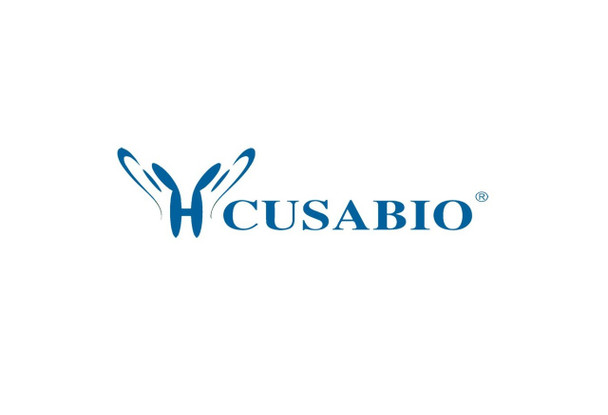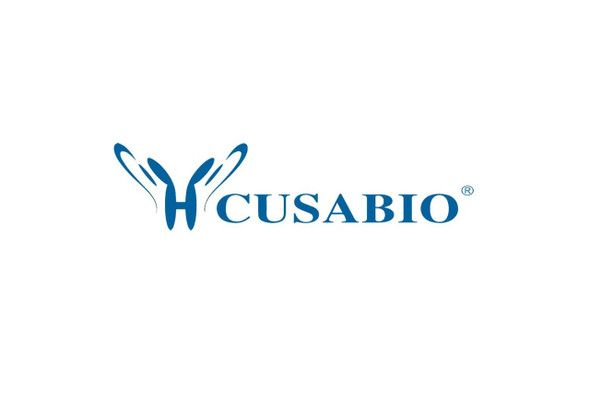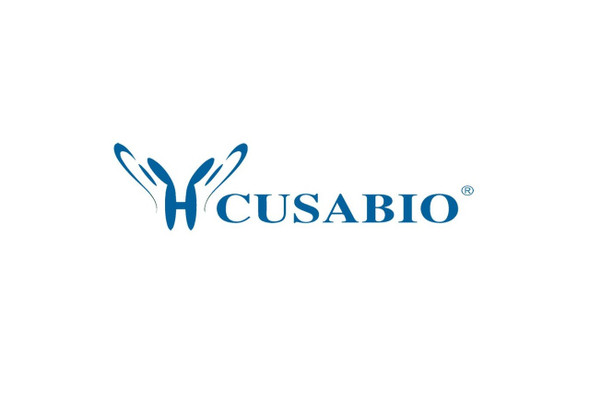Cusabio Human Recombinants
Recombinant Human Ras-related C3 botulinum toxin substrate 3 (RAC3) | CSB-EP019249HU
- SKU:
- CSB-EP019249HU
- Availability:
- 13 - 23 Working Days
Description
Recombinant Human Ras-related C3 botulinum toxin substrate 3 (RAC3) | CSB-EP019249HU | Cusabio
Alternative Name(s): p21-Rac3
Gene Names: RAC3
Research Areas: Signal Transduction
Organism: Homo sapiens (Human)
AA Sequence: MQAIKCVVVGDGAVGKTCLLISYTTNAFPGEYIPTVFDNYSANVMVDGKPVNLGLWDTAGQEDYDRLRPLSYPQTDVFLICFSLVSPASFENVRAKWYPEVRHHCPHTPILLVGTKLDLRDDKDTIERLRDKKLAPITYPQGLAMAREIGSVKYLECSALTQRGLKTVFDEAIRAVLCPPPVKKPGKKC
Source: E.coli
Tag Info: N-terminal GST-tagged
Expression Region: 1-192aa
Sequence Info: Full Length
MW: 48 kDa
Purity: Greater than 90% as determined by SDS-PAGE.
Relevance: Plasma membrane-associated small GTPase which cycles between an active GTP-bound and inactive GDP-bound state. In active state binds to a variety of effector proteins to regulate cellular responses, such as cell spreading and the formation of actin-based protusions including lamellipodia and membrane ruffles. Promotes cell adhesion and spreading on fibrinogen in a CIB1 and alpha-IIb/beta3 integrin-mediated manner.
Reference: "Characterization of RAC3, a novel member of the Rho family." Haataja L., Groffen J., Heisterkamp N. J. Biol. Chem. 272:20384-20388(1997)
Storage: The shelf life is related to many factors, storage state, buffer ingredients, storage temperature and the stability of the protein itself. Generally, the shelf life of liquid form is 6 months at -20?/-80?. The shelf life of lyophilized form is 12 months at -20?/-80?.
Notes: Repeated freezing and thawing is not recommended. Store working aliquots at 4? for up to one week.
Function: Plasma membrane-associated small GTPase which cycles between an active GTP-bound and inactive GDP-bound state. In active state binds to a variety of effector proteins to regulate cellular responses, such as cell spreading and the formation of actin-based protusions including lamellipodia and membrane ruffles. Promotes cell adhesion and spreading on fibrinogen in a CIB1 and alpha-IIb/beta3 integrin-mediated manner.
Involvement in disease:
Subcellular Location: Cytoplasm, Endomembrane system, Cell projection, lamellipodium, Cytoplasm, perinuclear region, Cell membrane, Cytoplasm, cytoskeleton
Protein Families: Small GTPase superfamily, Rho family
Tissue Specificity: Highest levels in brain, also detected in heart, placenta and pancreas.
Paythway: cAMPsignalingpathway
Form: Liquid or Lyophilized powder
Buffer: If the delivery form is liquid, the default storage buffer is Tris/PBS-based buffer, 5%-50% glycerol. If the delivery form is lyophilized powder, the buffer before lyophilization is Tris/PBS-based buffer, 6% Trehalose, pH 8.0.
Reconstitution: We recommend that this vial be briefly centrifuged prior to opening to bring the contents to the bottom. Please reconstitute protein in deionized sterile water to a concentration of 0.1-1.0 mg/mL.We recommend to add 5-50% of glycerol (final concentration) and aliquot for long-term storage at -20?/-80?. Our default final concentration of glycerol is 50%. Customers could use it as reference.
Uniprot ID: P60763
HGNC Database Link: HGNC
UniGene Database Link: UniGene
KEGG Database Link: KEGG
STRING Database Link: STRING
OMIM Database Link: OMIM









